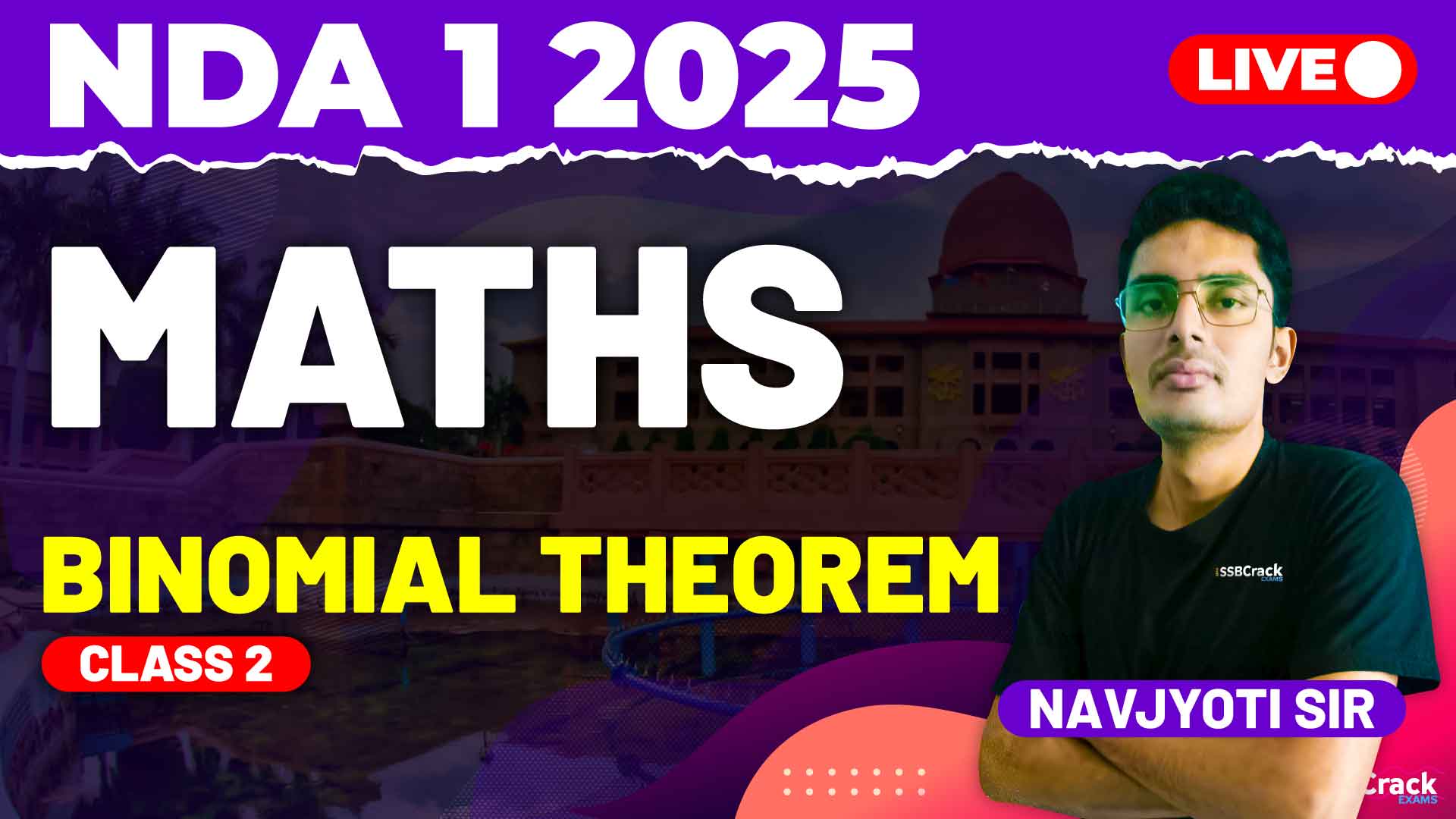Our recent class on the Binomial Theorem was a focused session dedicated to preparing for the types of multiple-choice questions (MCQs) likely to appear in the National Defence Academy and Naval Academy (NDA-NA) exam. The Binomial Theorem, with its numerous applications in algebra and combinatorics, consistently features in the NDA-NA Paper I – Maths section, testing both conceptual understanding and calculation skills. The class centered around discussing and solving MCQs from previous exams as well as anticipated questions, providing a solid groundwork for students to approach similar problems with confidence.
Key Highlights from the Class
During the session, we covered a wide range of Binomial Theorem concepts through practical, exam-style questions. Here’s an outline of the main areas of focus:
1. Revisiting Binomial Expansions
- We started by reviewing how the Binomial Theorem is used to expand expressions raised to a power. This refresher helped students tackle questions asking for specific terms or coefficients within an expansion, a common question format in NDA-NA exams.
- Previous years’ MCQs showed how the structure of each term is influenced by power and coefficients, so we emphasized recognizing these patterns in exam questions to make quick and accurate decisions.
2. MCQs on Pascal’s Triangle and Coefficients
- Pascal’s Triangle is a fundamental tool in calculating binomial coefficients quickly. We examined several MCQs where students identified binomial coefficients using the triangle instead of calculations. Understanding how coefficients work within the triangle allowed students to answer coefficient-related questions confidently.
3. Middle Term and Independent Term Identification
- One common type of MCQ in NDA-NA exams asks for the middle or independent term of a binomial expansion. To make this simpler, we practiced spotting the position of the middle term, whether the power was even or odd, and determining the independent term (the term without a variable).
- This section was particularly helpful, as these terms often appear in various formats, and quick identification can save valuable time on the exam.
4. Sum of Binomial Coefficients
- The sum of binomial coefficients is another area frequently tested in exams. By solving MCQs focused on this concept, students practiced recognizing the structure of expanded binomials and quickly summing coefficients without detailed calculations. This technique also proved valuable for combination-based questions, where finding sums quickly aids in tackling more complex problems.
Essential Strategies for Mastering Binomial Theorem MCQs
Mastering Binomial Theorem MCQs for the NDA-NA exam requires a combination of conceptual understanding, strategic thinking, and consistent practice. Here are the top strategies shared in the class:
- Master the Basics: Begin by thoroughly understanding the structure of binomial expansions and the role of each term. This fundamental knowledge makes it easier to approach any question format confidently.
- Use Pascal’s Triangle for Quick Reference: Memorizing the structure of Pascal’s Triangle is invaluable for binomial coefficient questions. By visualizing the triangle, you can identify coefficients without time-consuming calculations.
- Practice Term Identification: Recognize specific terms like the middle or independent term within expansions. Regularly practice questions that ask for these terms, so you can solve them in seconds during the exam.
- Focus on Patterns in Past Papers: Practicing previous years’ NDA-NA MCQs helps you identify patterns in question types and builds familiarity with the exam’s focus areas. This insight is beneficial as many questions follow a similar format across years.
- Consistent Revision: Revisit Binomial Theorem concepts regularly and keep solving different types of MCQs. Familiarity and regular practice help in reinforcing concepts, which can be particularly helpful in high-pressure situations during exams.
Conclusion
The Binomial Theorem is an important topic in the NDA-NA exam, and mastering it can provide a valuable scoring opportunity. The recent class on MCQs from previous and anticipated exams gave students a practical approach to the Binomial Theorem, covering a range of question types and problem-solving strategies. By focusing on basics, using Pascal’s Triangle effectively, and regularly practicing past MCQs, students can significantly boost their efficiency and confidence.
For NDA-NA aspirants, a well-prepared strategy for Binomial Theorem MCQs not only improves speed but also strengthens their overall performance on the Maths paper. With consistent effort and the right approach, this topic can become a reliable asset in achieving success on exam day.







